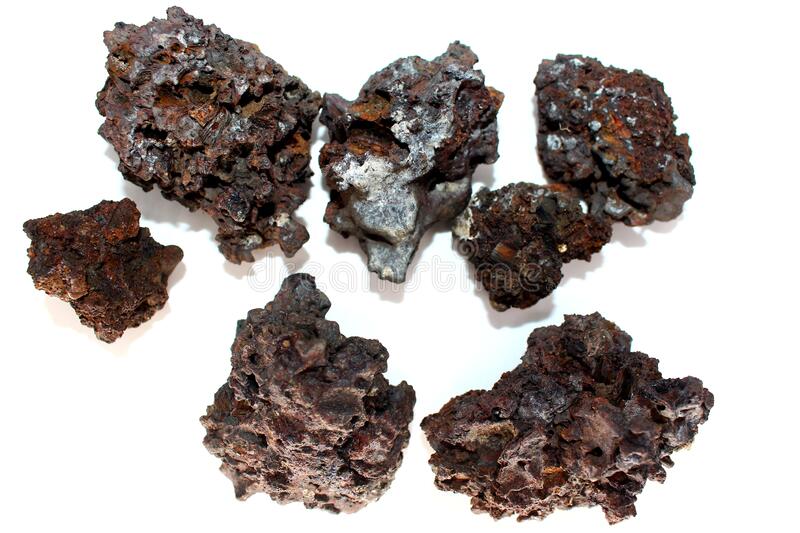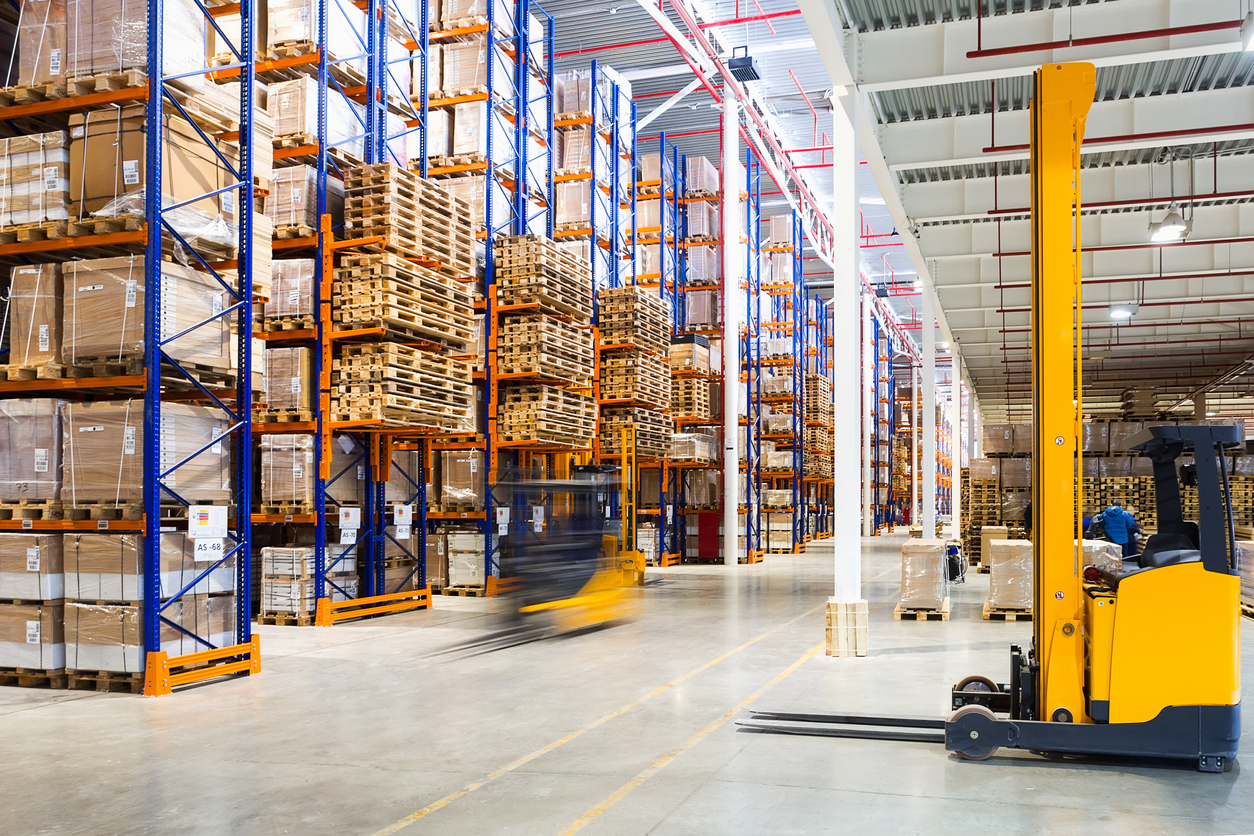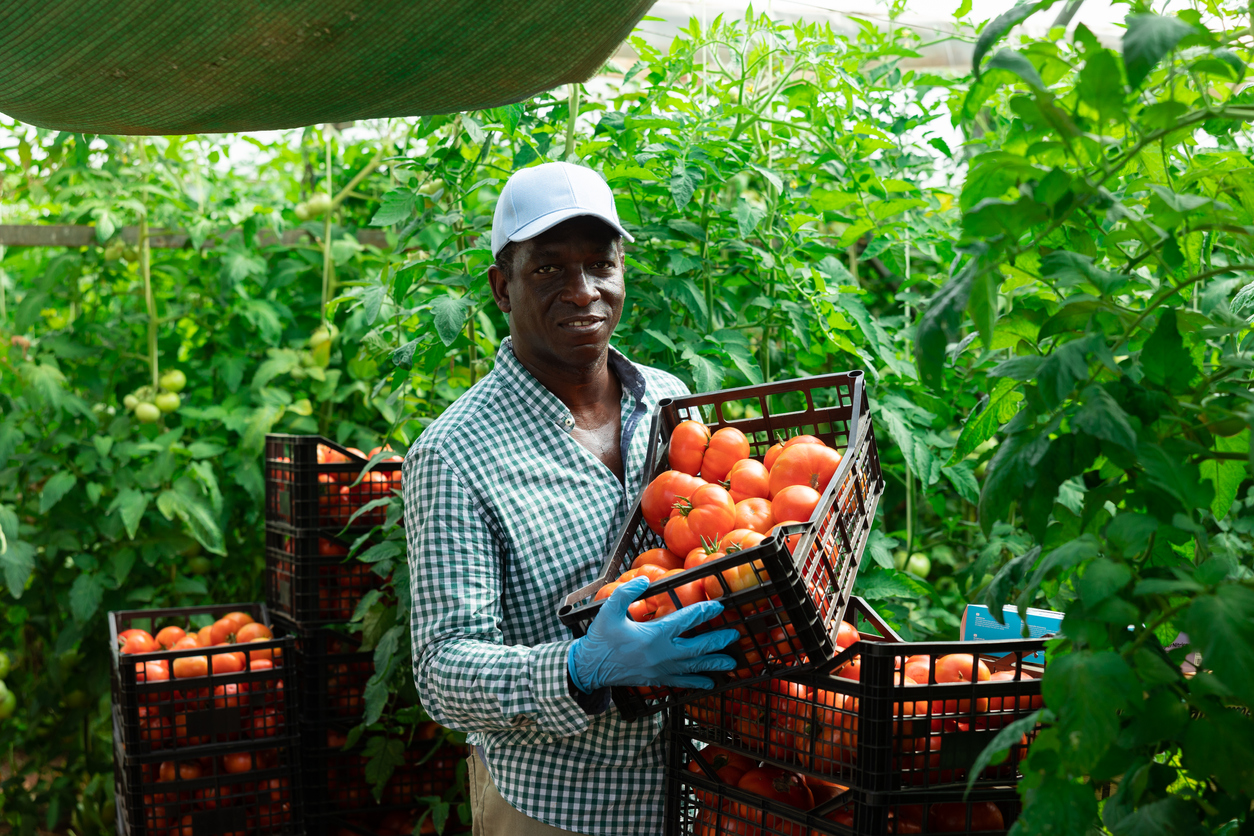The Future of Iron Ore Pellet Production in Nigeria: Insights from Wigmore Trading
The Future of Iron Ore Pellet Production in Nigeria: Insights from Wigmore Trading
As the demand for iron ore continues to rise globally, Nigeria is positioned as a key player in the future of pellet production. In this blog post, we will explore insights from leading industry experts at Wigmore Trading on the potential growth and challenges facing the iron ore pellet industry in Nigeria. Join us as we delve into the exciting possibilities and innovations that lie ahead for this vital sector.
Introduction to Iron Ore Pellet Production in Nigeria
Introduction to Iron Ore Pellet Production in Nigeria
Iron ore is a crucial raw material for the production of steel, an essential component in construction, infrastructure development, and manufacturing. In recent years, there has been a growing demand for iron ore pellets worldwide due to their superior quality and cost-effectiveness compared to traditional iron ore. This trend has also been observed in Nigeria, where the government has identified the mining sector as a strategic priority for economic diversification.
Nigeria is blessed with abundant mineral resources, including large deposits of high-quality iron ore. The country’s estimated reserves of iron ore are over 2 billion metric tons, with most of it found in Kogi State. However, despite such vast reserves, Nigeria’s domestic production of iron ore pellets has been limited.
The primary reason for this underutilization is the lack of adequate infrastructure and investment in the mining sector. Historically, much of Nigeria’s iron ore was exported in its raw form to countries like China and India. As a result, local steel producers had to rely on imported iron ore concentrates or inferior quality local ores to meet their demands.
However, with the increasing global demand for high-grade iron ore pellets and favorable government policies aimed at boosting domestic production and consumption of minerals, Wigmore Trading saw an opportunity to tap into this potential market.
Wigmore Trading is a leading supplier and producer of high-quality iron oxide pellets used in various industrial applications. The company started operations in 2018 with a focus on developing its own mines and establishing partnerships with other mine owners across Nigeria.
Today Wigmore Trading operates two pelletizing plants located in Kogi State that have a combined capacity of producing 1 million tons per year. These state-of-the-art facilities use modern technology and equipment to produce premium grade pellets that are low in impurities and have consistent chemical composition.
Moreover, Wigmore Trading ensures strict adherence to environmental regulations by implementing sustainable practices throughout its production process. This commitment to sustainability has earned the company recognition and certification from responsible mining organizations.
With Wigmore Trading’s investment in iron ore pellet production, Nigeria is now on its way to becoming a major player in the global market. The company’s efforts have not only created employment opportunities but also contributed significantly to the country’s economic development and self-sufficiency in steel production.
Overview of the Iron Ore Industry in Nigeria
Overview of the Iron Ore Industry in Nigeria
Nigeria is a country rich in various natural resources, including iron ore. It is estimated that Nigeria has over 3 billion metric tons of iron ore deposits, making it one of the top countries in Africa with the largest iron ore reserves. The majority of these reserves are found in Kogi, Enugu, and Niger states.
The history of iron ore production in Nigeria dates back to the early 1960s when it was first discovered in Itakpe, a small town in Kogi state. However, due to lack of proper infrastructure and technological advancements at that time, commercial mining and production were not feasible.
In recent years, there has been a renewed interest and investment in the Nigerian iron ore industry due to the increasing global demand for steel and other related products. This has led to an increase in exploration activities by both local and foreign companies, resulting in new discoveries and developments.
Currently, Nigeria produces about 2.5 million tons of iron ore per year from its existing mines located mainly in Itakpe and Agbaja. However, this only accounts for a fraction of its total reserves and potential production capacity.
One of the major players driving growth and development within the Nigerian iron ore industry is Wigmore Trading Company Limited. With their expertise and experience gained from being one of the leading suppliers of raw materials for steel production globally, they have been instrumental in promoting sustainable development within this sector.
The Nigerian government also recognizes the potential economic benefits that could be derived from fully harnessing its vast mineral resources. In line with this vision, several policies have been put into place to encourage local production through tax incentives and import duty waivers on machinery used for mining operations.
Despite these efforts towards growth and development within the industry, there are still challenges hindering its full potential. These include inadequate infrastructure such as roads and railways needed for transportation; limited access to capital investment; and the high cost of production due to the use of outdated technology and equipment.
The iron ore industry in Nigeria has immense potential for growth and development. With ongoing efforts from both private and public sectors, it is expected to play a significant role in the country’s economic diversification plans.
Challenges and Opportunities for Iron Ore Pellet Production in Nigeria
Challenges and Opportunities for Iron Ore Pellet Production in Nigeria
Nigeria, known for its vast natural resources and abundant mineral reserves, holds great potential for the production of iron ore pellets. With an estimated 3 billion tons of proven iron ore reserves, the country has the potential to become a major player in the global iron ore market. However, there are several challenges that need to be addressed before this potential can be realized.
One of the main challenges facing iron ore pellet production in Nigeria is inadequate infrastructure. The lack of proper transportation systems and reliable power supply hinders the efficient movement of raw materials and finished products. This results in increased costs and longer lead times, making it difficult for Nigerian producers to compete with established players in the international market.
Another hurdle for iron ore pellet production in Nigeria is the limited availability of skilled labor. While there is a large pool of young talent in the country, most lack specialized training or experience in mining and processing operations. This makes it challenging for companies to find qualified workers who can operate advanced technology and ensure efficient production processes.
Furthermore, environmental regulations and community resistance pose significant challenges for iron ore pellet producers. In recent years, there have been increasing concerns about environmental degradation caused by mining activities across Africa. As a result, stricter regulations have been implemented to ensure sustainable practices are followed. These regulations not only increase operational costs but also require companies to invest more time and resources into obtaining permits and addressing environmental concerns.
Despite these challenges, there are also opportunities that can make Nigeria a key player in global iron ore pellet production. One such opportunity is the growing demand for steel from developing countries like China and India. With rapid industrialization driving their economies, these countries have emerged as major importers of steel products including iron ore pellets.
Moreover, government initiatives aimed at promoting economic diversification away from oil dependency offer promising opportunities for investors interested in setting up iron ore pellet plants in Nigeria. The government has been actively working to improve infrastructure and create a more favorable business environment for foreign investors. Additionally, recent developments in technology have made it possible to produce high-quality iron ore pellets with lower operational costs, making Nigerian production more competitive.
While there are challenges that need to be addressed, the potential for iron ore pellet production in Nigeria is undeniable. With the right investments and strategies in place, Nigeria can become a major producer of iron ore pellets and contribute significantly to the global market. It will require collaboration between government agencies, private companies, and local communities to overcome the challenges and seize the opportunities presented by this promising industry.
Insights from Wigmore Trading: Their Role in the Nigerian Iron Ore Market
Insights from Wigmore Trading: Their Role in the Nigerian Iron Ore Market
Wigmore Trading, a leading trading company based in Nigeria, has played a significant role in the country’s iron ore market. With over 20 years of experience in the industry, they have established themselves as a reliable and reputable partner for both local and international clients. In this section, we will delve deeper into their insights on the current state and future prospects of iron ore pellet production in Nigeria.
One of the key insights from Wigmore Trading is the potential for growth in the Nigerian iron ore market. Despite having vast reserves of high-quality iron ore, Nigeria has been unable to tap into its full potential due to various challenges such as inadequate infrastructure and government policies. However, with recent developments in infrastructure projects and favorable policies aimed at promoting local production, there is now optimism for growth in the sector.
According to Wigmore Trading, another crucial factor that will drive growth in the Nigerian iron ore market is increasing demand from emerging economies like China and India. These countries are major consumers of steel products, which require high-grade iron ore pellets for production. As they continue to invest heavily in infrastructure development and urbanization projects, there will be a steady demand for raw materials like iron ore pellets from countries like Nigeria.
Furthermore, Wigmore Trading highlights that there is a growing trend towards sustainable practices in the global steel industry. This has led to an increased demand for environmentally friendly raw materials like direct reduced iron (DRI), which can be produced using high-quality iron ore pellets made from natural gas or coal-based processes. This presents an opportunity for Nigeria to position itself as a supplier of eco-friendly DRI pellets to meet this rising demand.
However, despite these opportunities for growth, Wigmore Trading cautions that challenges remain in the Nigerian iron ore market. The lack of reliable data on mineral reserves and production levels makes it difficult for investors to accurately assess the potential of the sector. Additionally, inconsistent government policies and bureaucratic bottlenecks can hinder progress and discourage investment.
To address these challenges, Wigmore Trading emphasizes the need for continuous engagement between all stakeholders in the iron ore industry, including government agencies, local communities, and investors. This will ensure transparent and consistent policies that will attract more investments and foster sustainable growth in the sector.
Wigmore Trading’s insights offer a positive outlook for iron ore pellet production in Nigeria. With continued efforts to improve infrastructure and address policy challenges, along with increasing demand from emerging economies, Nigeria has the potential to become a major player in the global iron ore market. However, it is essential to have a collaborative approach involving all stakeholders to unlock its full potential.
Technological Advancements and Innovations in Iron Ore Pellet Production
Technological advancements and innovations have played a significant role in the evolution of iron ore pellet production. These advancements have led to major improvements in efficiency, productivity, and quality control in the production process.
One of the most notable technological advancements is the use of automated systems for pelletizing iron ore. This has greatly increased productivity and reduced human error in the process. Automated systems are able to precisely measure and mix raw materials, resulting in a more consistent product with less variation in quality. They also allow for real-time monitoring of production parameters, making it easier to identify and address any issues that may arise during the production process.
Another innovation that has revolutionized iron ore pellet production is the development of new binders and additives. Binders are essential components used to hold together fine particles of iron ore during the pelletization process. Traditionally, bentonite clay was used as a binder, but with recent technological advancements, alternative binding agents such as organic polymers have been introduced. These new binders not only improve the strength and durability of pellets but also reduce water consumption during processing.
Moreover, there have been significant developments in equipment used for crushing, grinding, and sorting iron ore pellets. Advanced crushers can now handle larger quantities of raw materials at higher speeds while consuming less energy than traditional crushers. This results in faster processing times and lower operational costs.
In terms of environmental sustainability, technological innovations have also made great strides in reducing carbon emissions from iron ore pellet production processes. For instance, some companies have started using biomass-based fuels instead of fossil fuels in their kilns or furnaces. This not only reduces carbon emissions but also helps to conserve natural resources.
Furthermore, data analytics tools and artificial intelligence (AI) are being utilized to optimize various aspects of pellet production such as raw material selection and blending ratios. By analyzing vast amounts of data from different sources such as weather patterns and market demand, AI algorithms can help companies make more informed decisions, leading to better overall efficiency and profitability.
Technological advancements and innovations have significantly impacted the iron ore pellet production industry. These advancements have led to increased productivity, improved product quality, reduced environmental impact, and more sustainable operations. As technology continues to evolve, we can expect further improvements in the production process of iron ore pellets in Nigeria and around the world.
Environmental Impact and Sustainability Considerations
Environmental Impact and Sustainability Considerations:
As the demand for iron ore pellets continues to grow, it is crucial to consider the environmental impact and sustainability of their production in Nigeria. The production of iron ore pellets involves various processes that can have significant impacts on the environment. It is essential to evaluate these impacts and implement sustainable practices to ensure a balance between economic growth and environmental protection.
One of the main concerns with iron ore pellet production is its potential contribution to air pollution. The heating process used in pelletizing releases large amounts of carbon dioxide, sulfur dioxide, nitrogen oxides, and particulate matter into the atmosphere. These emissions can have harmful effects on human health and contribute to climate change. To mitigate these impacts, Wigmore Trading has invested in modern technology that reduces greenhouse gas emissions from their pelletizing plants significantly.
Water usage is another important consideration when it comes to iron ore pellet production. The mining process requires vast amounts of water for dust control, transportation, processing, and cooling purposes. This high demand for water can put a strain on local water resources and ecosystems if not managed properly. Wigmore Trading has implemented efficient water management practices such as recycling wastewater and using closed-loop systems to minimize their water footprint.
Furthermore, mining activities also have a significant impact on land use. Open-pit mining methods are commonly used in Nigeria for iron ore extraction, which can result in deforestation, soil erosion, loss of biodiversity, and disruption of local communities’ livelihoods. To address this issue, Wigmore Trading has committed to implementing responsible land restoration practices after completing mining operations. They also work closely with local communities to ensure minimal disruptions during the extraction process.
In addition to environmental impacts, sustainability considerations are crucial for long-term success in any industry. This includes ensuring that resources are utilized efficiently without compromising future generations’ ability to meet their needs. As one of Nigeria’s leading producers of iron ore pellets, Wigmore Trading recognizes the importance of sustainable practices and has implemented various initiatives to reduce their environmental footprint. These include energy-efficient operations, waste management strategies, and investing in renewable energy sources.
While the demand for iron ore pellets in Nigeria is expected to continue rising, it is crucial to prioritize environmental impact and sustainability considerations. Wigmore Trading’s commitment to implementing responsible practices highlights the possibility of achieving economic growth without compromising the environment. With continued efforts towards sustainability, the future of iron ore pellet production in Nigeria looks promising.
Future Outlook for Iron Ore Pellet Production in Nigeria
The outlook for iron ore pellet production in Nigeria is promising, thanks to the efforts of companies like Wigmore Trading. With a growing demand for steel worldwide and the abundant resources of iron ore in Nigeria, there is a great potential for growth in this sector.
One major factor contributing to the positive future outlook is the Nigerian government’s aim to diversify its economy. For decades, Nigeria has heavily relied on oil as its main source of revenue. However, with fluctuating oil prices and concerns about sustainability, there has been a push towards developing other industries such as mining and manufacturing. This has led to increased investment in the iron ore mining sector and a focus on developing local processing capabilities.
In addition, global steel production is projected to continue growing in the coming years due to increasing infrastructure projects and urbanization in emerging economies. As one of Africa’s largest economies, Nigeria stands to benefit from this growth by expanding its own steel production capacity. This will require an increase in domestic supply of iron ore pellets, creating opportunities for companies like Wigmore Trading.
Furthermore, advancements in technology have made it easier and more cost-effective to produce high-quality iron ore pellets. These advancements include new techniques for extracting iron ore from lower-grade ores and improved methods for pelletizing that result in higher yield rates. With these innovations, Wigmore Trading can produce more pellets at competitive prices while maintaining high standards of quality.
Moreover, there have been significant improvements in infrastructure within Nigeria’s mining industry over recent years. The government has invested heavily in improving transportation systems necessary for efficient movement of raw materials and finished products across the country. This not only benefits the mining industry but also makes it easier for other sectors such as construction and manufacturing to access raw materials essential for their operations.
However, challenges do exist that could potentially affect future prospects for iron ore pellet production in Nigeria. One major concern is political instability which can create uncertainty among investors and hinder growth opportunities. Additionally, the high cost of energy and limited access to credit for small businesses could also pose obstacles.
The future outlook for iron ore pellet production in Nigeria is bright. With a growing demand for steel globally, favorable government policies, technological advancements, and improved infrastructure, there are vast opportunities for companies like Wigmore Trading to thrive in this industry. However, it will be essential to address challenges such as political instability and access to financing in order to fully realize the potential of this sector.
Conclusion: The Potential Growth and Development of the Nigerian Iron Ore Industry
Conclusion: The Potential Growth and Development of the Nigerian Iron Ore Industry
The future of iron ore pellet production in Nigeria looks promising, with potential for significant growth and development. As highlighted in this article, there are several factors that contribute to this positive outlook.
Firstly, Nigeria is rich in iron ore reserves, estimated to be over 2 billion metric tons. This puts the country among the top ten countries with the largest deposits of iron ore globally. With proper exploration and exploitation of these resources, Nigeria has the potential to become a major player in the global iron ore market.
Secondly, the recent government initiatives such as the National Integrated Infrastructure Master Plan (NIIMP) and Economic Recovery and Growth Plan (ERGP) have identified mining as a key sector for economic diversification. This presents an opportunity for increased investment in the Nigerian mining industry, including iron ore production.
Additionally, there has been a steady increase in demand for steel products both locally and globally. As one of the main raw materials used in steel production, iron ore will continue to be in high demand. This creates a favorable market for Nigerian iron ore producers to tap into.
Moreover, developments such as Wigmore Trading’s partnership with Chinese investors demonstrate growing interest from international players in investing in Nigeria’s iron ore industry. This not only brings much-needed capital but also facilitates knowledge sharing and technology transfer that can boost local production processes.
Furthermore, efforts by the government to improve infrastructure such as rail networks and ports will significantly reduce logistical challenges faced by producers when exporting their products. This will help lower production costs and make Nigerian iron ore more competitive on the global market.
However, despite these opportunities and potential growth prospects, there are still challenges that need to be addressed for sustainable development of Nigeria’s iron ore industry. These include improving regulatory frameworks, addressing security concerns especially in areas where mining activities take place, promoting local participation through capacity building initiatives, among others.
The Nigerian iron ore industry has immense potential for growth and development. With the right strategies and support from all stakeholders, it can become a major contributor to the country’s economic growth and diversification efforts. Wigmore Trading’s insights provide valuable perspectives on the current state and future prospects of this important sector, making it a must-read for anyone interested in Nigeria’s mining industry.







Comments are closed.